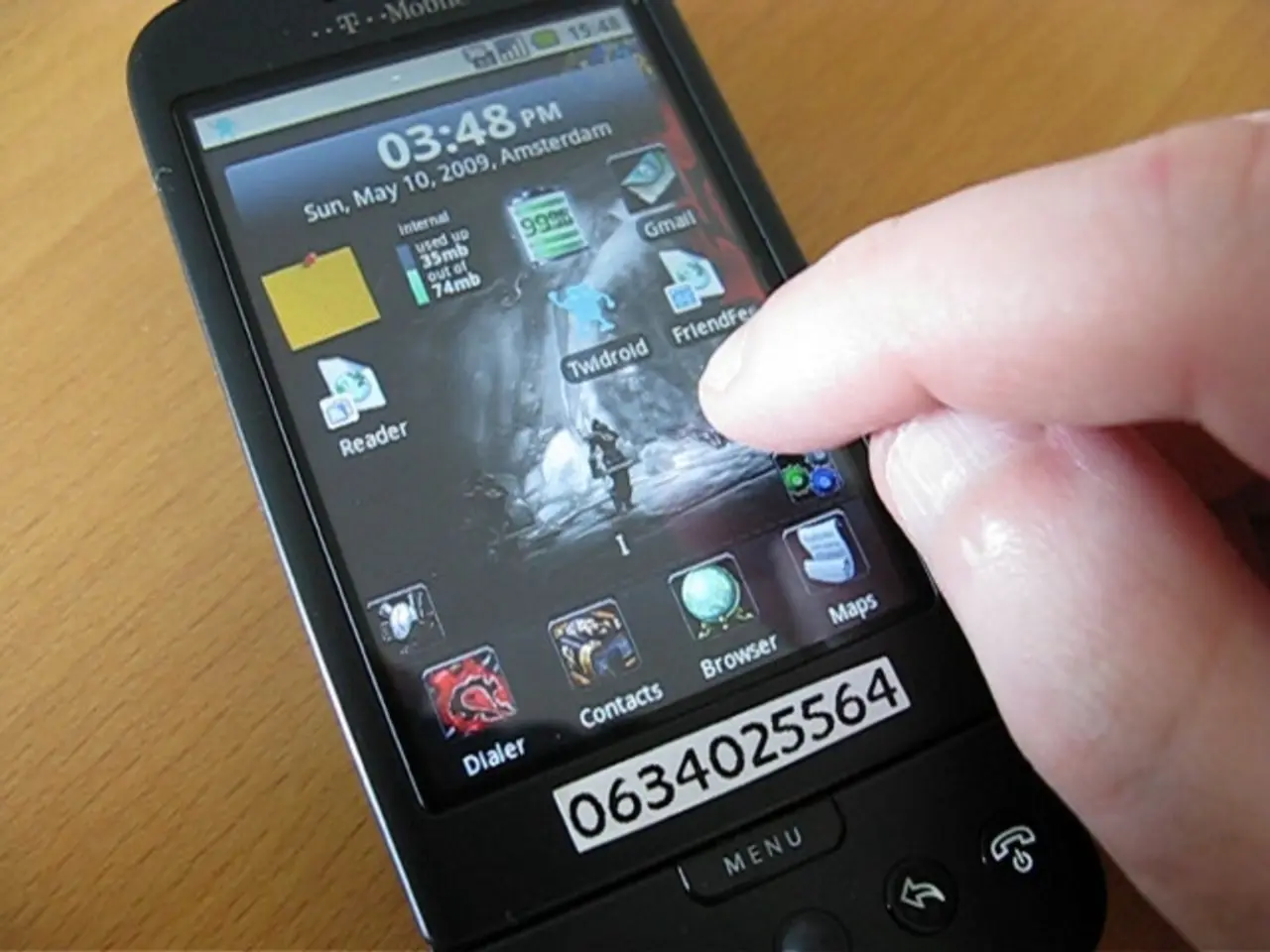Vodafone's fraud detection system identifies 15 million suspicious calls
Vodafone, a leading mobile network provider in Germany, has issued a warning to its customers about nearly 15 million potential fraudulent calls over the past three months. According to CEO Marcel de Groot, these warnings are just the tip of the iceberg, emphasizing the need for increased vigilance among consumers due to the increasing danger on the internet and on the phone line.
The warning system, which functions independently of the phone model, works with mobile brands like Freenet, as long as they are technically operating on the Vodafone network. If a Vodafone customer receives a call from a suspicious number, they will see the warning "Caution: Fraud Possible!" on their smartphone display.
Vodafone's fraudulent number database does not claim to be complete due to the dynamic nature of fraudsters changing their numbers. The source of the information is ntv.de, dpa.
The data pool includes hotlines that promote products and services without necessary consumer consent, as well as criminal elements seeking personal data or money under false pretenses. Marcel de Groot further highlighted that everyone needs to be more cautious in their daily lives and check who is on the other end of the line.
The anti-spam systems on mobile networks, including Vodafone's, are moderately effective in detecting and warning users about potentially fraudulent calls. These systems primarily rely on artificial intelligence (AI), machine learning (ML), and real-time analytics to detect patterns of spam and scam calls.
However, despite these technological advances, fraudsters continuously adjust their methods to evade detection. They craft deceptive call patterns and spoof caller IDs, making certain scams hard to detect automatically. Moreover, social engineering remains a critical vulnerability since many attacks rely on exploiting human behavior over pure technical breaches.
To improve protection against telephone fraud, measures such as enhancing AI and machine learning models, implementing behavioral analytics and fraud malware prevention, integrating blockchain technology, providing user education and timely alerts, and deploying comprehensive global traffic oversight are essential.
On average, Vodafone's new security service warns 150,000 mobile users daily about potential fraud. On one day alone, over 650,000 spam calls were registered by Vodafone's system. It's important to note that other major mobile network providers like Deutsche Telekom and O2 Telefónica are also developing anti-spam solutions, but these are not yet available on the market.
In sum, while current anti-spam and anti-fraud systems on mobile networks are technically sophisticated and effective at large scale detection, ongoing improvements in adaptive AI models, behavioral analysis, secure transaction recording, and user education are essential to stay ahead in the escalating arms race against telephone fraud. Marcel de Groot encourages everyone to be more vigilant and cautious in their daily lives to protect themselves from potential fraud.
The Commission, in light of the increasing cybersecurity threats, has also been asked to submit a proposal for a directive on the protection of workers from the risks related to exposure to both physical and digital threats, such as ionizing radiation and cyber-intrusions in the workplace, given the integrated nature of modern technology.
Alongside the advancements in anti-spam and anti-fraud technologies, it is crucial to train workers to recognize and respond to social engineering tactics, as human behavior remains a vital point of entry for digital intrusions and telephone fraud.




